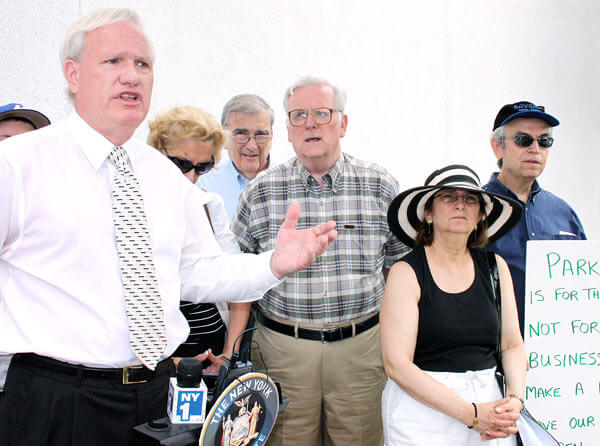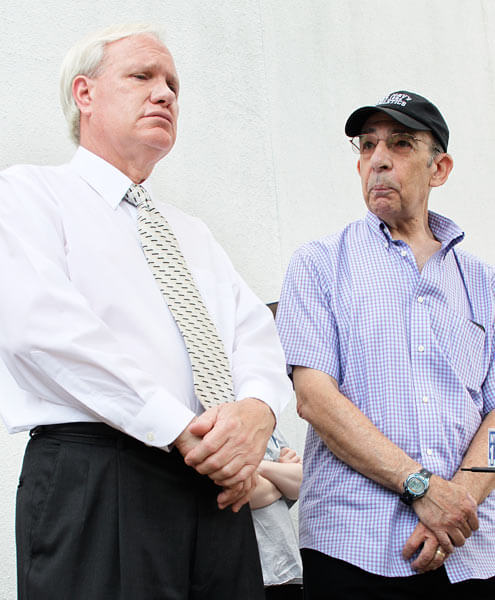By Joe Anuta
A new state bill would force private companies that set up shop on parkland to replace the greenspace somewhere else at three times the size, which could make Flushing Meadows Corona Park less enticing for development projects.
The state Parks Department prefers any park plots that are leased or sold by the government to be replaced, according to a handbook distributed by the agency, although a swap is not technically required.
“I was shocked to find out the procedure is not actually codified into law,” state Sen. Tony Avella (D-Bayside) said outside his office Tuesday.
The lawmaker’s proposed legislation would also require at least one portion of the replacement parcel to be as large as the land being taken away and the entire exchange to take place within a 1-mile radius.
Avella said the 3-1 ratio is designed to make it more difficult to take away taxpayers’ recreation space, which has become a hot-button issue for Flushing Meadows.
The New York Mets are proposing to put a 1.4-million-square-foot mall on a Citi Field parking lot that is leased parkland, the United States Tennis Center hopes to soon absorb 0.68 acres of the greenspace into its tennis center lease and Major League Soccer used to have its eye on 13 acres of Flushing Meadows to build a soccer stadium, though league officials now appear to be considering other options.
“Unless we have legislation like this, the Mets will get what they want and MLS will get what they want,” he said.
Avella’s bill comes on the heels of another piece of legislation introduced by Sen. Jose Serrano (D-Manhattan) this year, but Serrano’s proposal does not include the 3-1 ratio.
Leasing or selling parkland, a process called alienation, already requires the state Legislature to sign off on the deal. But swapping the land is merely ensconced in common law, meaning the courts have consistently ruled in civil cases that the quid pro quo take place.
But in at least one instance, replacement land was never provided.
“State Parks recognizes, in rare instances, that there may be valid reasons to alienate particular parklands when the substitution of other lands is not possible or appropriate,” the Parks handbook states.
As an example, the department pointed to a 2000 alienation in the Westchester town of Rye in order to accommodate the expansion of a children’s library, which overstepped municipal parkland.
Sen. George Latimer (D-Port Chester) represents the area and said in that case the encroachment was justified and might not have taken place if the library was required to buy land elsewhere.
“I think the senator’s bill has tremendous merit, but there may be cases where a waiver of the law might be necessary,” he said, citing situations where small villages and towns might have trouble finding triple the replacement land in their limited jurisdictions.
The Legislature is currently out of session for the summer, meaning Avella’s bill will have to simmer while developers continue plans to build in Flushing Meadows unless the governor summons the lawmakers back to Albany for a special session.
But should it eventually become law, the alienation process would more closely align with federal standards.
Any parkland that is federally regulated, as portions of Flushing Meadows are, must be replaced with land “at least equal” to the lands being taken away.
Reach reporter Joe Anuta by e-mail at januta@cnglocal.com or by phone at 718-260-4566.

































